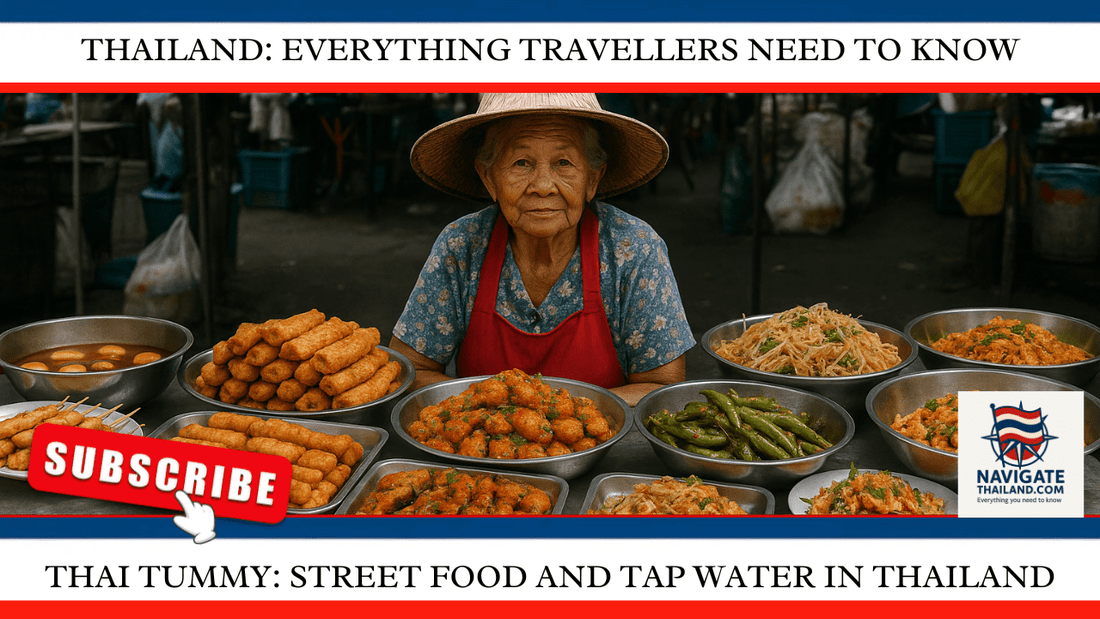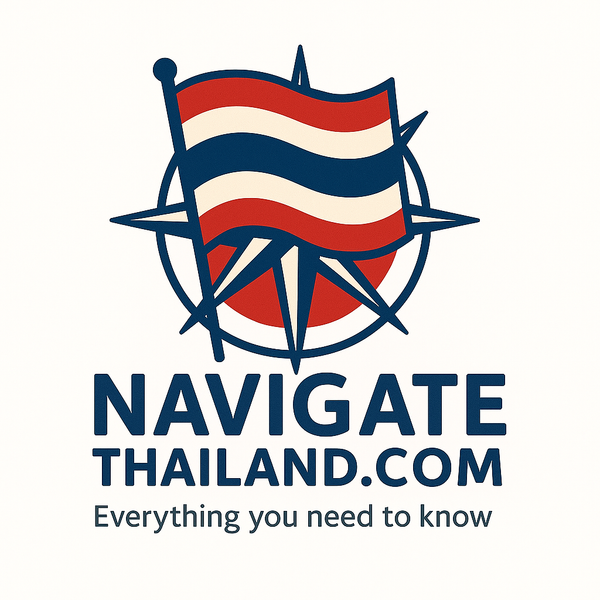
Thai Tummy: Street Food and Tap Water in Thailand – What Travellers Need to Know
Share
Thailand is a paradise for food lovers, with bustling markets and sizzling street stalls on every corner. From spicy som tum to grilled skewers and aromatic noodle soups, Thai street food is a big part of the travel experience. But for many visitors, an unexpected bout of “Thai tummy” can dampen the adventure.
This guide explores the causes of food- and water-borne illness in Thailand and gives you expert-backed tips to help you enjoy Thai cuisine safely.
The Risks of Street Food in Thailand
Thailand’s tropical climate and open-air food stalls make it easy for bacteria and parasites to thrive. While much of the food is safe and delicious, poor hygiene practices can increase your chances of food poisoning. Here’s what to look out for:
1. Bacterial Infections
Common bacteria like Salmonella, E. coli, and Campylobacter can cause stomach cramps, diarrhoea, and fever.
- Salmonella: Often found in undercooked chicken, pork, or eggs.
- E. coli: Spread via contaminated water or unwashed vegetables.
- Campylobacter: Associated with undercooked poultry and unpasteurised milk.
2. Parasites in Food
- Giardia: Contracted through unclean water or raw produce.
- Tapeworms: Linked to raw or undercooked meat, especially pork or freshwater fish.
3. Heavy Metals in Street Food
Some studies show that street food in Thailand may contain trace amounts of lead, cadmium, or mercury—usually due to polluted water or contaminated cooking equipment. Occasional exposure is unlikely to cause harm, but repeated consumption could be risky.
Tips for Safely Eating Thai Street Food
- Choose stalls with high turnover—if it’s busy with locals, that’s a good sign.
- Watch your food being cooked fresh and make sure it’s served hot.
- Avoid anything raw, especially meat, seafood, or salads.
- Only eat fruit you’ve peeled yourself.
- Skip any stall with visible pests or poor hygiene practices.
Is Tap Water Safe in Thailand?
In short, no. Tap water in Thailand is generally not safe for drinking. It may contain bacteria, parasites, or even traces of heavy metals due to industrial or agricultural contamination.
Common Risks:
- Bacterial Contamination: Like E. coli or Salmonella.
- Parasites: Including Giardia and Cryptosporidium.
- Heavy Metals: Such as lead and mercury from industrial runoff.
Safe Drinking Water Options
- Bottled Water: Always check that the seal is intact.
- Boiled Water: Effective against microbes, but not heavy metals.
- Filtered Water: Available in most hotels and some hostels.
- Avoid Ice: Unless you know it’s made from purified water.
Quick Safety Checklist for Travellers
- Stick to freshly cooked food served piping hot.
- Choose vendors with clean setups and fast-moving lines.
- Avoid tap water entirely—drink bottled or filtered only.
- Don’t eat raw fruit or salads unless you’ve washed and peeled them yourself.
- Say no to ice unless it’s clearly made from purified water.
Conclusion: Stay Healthy and Enjoy Thai Food Safely
Thailand’s street food scene is one of the most vibrant in the world. With a bit of caution and common sense, you can indulge in delicious local dishes without worrying about Thai tummy.
By following these safety tips, you’ll reduce your risk of food poisoning and be free to enjoy every bite of your Thai adventure.
References
- World Health Organization. (2021). Guidelines for Drinking-water Quality.
- Ministry of Public Health, Thailand. (2020). Food Safety and Sanitation Regulations.
- Centers for Disease Control and Prevention. (2022). Traveler’s Health: Thailand.
Read more of our Thailand blog series:
Thai Food Guide:Traditional Recipes and Street Eats
Everything Travellers Need to know
Thailand travel ebooks and language guides
Thailand Travel Apparel & Souvenir Gifts
Subscribe to our YouTube channel Navigate Thailand to see our most popular Thailand travel blogs turned into videos:
Navigate Thailand YouTube channel










































































































































